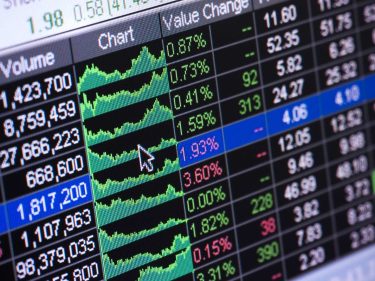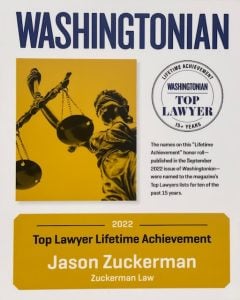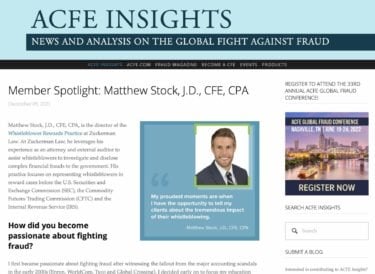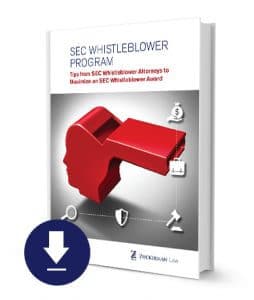
Top-Rated Market Manipulation Whistleblower Lawyers
Our firm’s SEC and CFTC whistleblower lawyers help whistleblowers worldwide investigate and disclose to the SEC and CFTC market manipulation schemes and our clients’ disclosures have helped halt significant market manipulation schemes.
Federal law prohibits market manipulation in securities, swaps, commodities, and futures markets. The SEC and CFTC define market manipulation as “intentional conduct designed to deceive investors by controlling or artificially affecting the [trading] market[s].” Fraudsters use various techniques to affect the supply or demand for these investment products. Common market manipulation schemes include:
- spreading false or misleading information;
- improperly limiting the number of publicly available shares; and
- rigging quotes, prices, or trades to create a false or deceptive demand.
Recently, the SEC and CFTC have stepped up their enforcement to combat market manipulation schemes. Under the Dodd-Frank Act’s whistleblower reward programs, whistleblowers are eligible to receive awards for reporting market manipulation. If represented by counsel, a whistleblower may submit a tip anonymously to the SEC and CFTC.
On October 21, 2021, the CFTC awarded a whistleblower $200 million for providing information that led the CFTC and another federal agency to take enforcement actions to combat the manipulation of financial benchmarks used by global banks.
In FY 2021, the most common SEC complaint category reported by SEC whistleblowers was market manipulation. In particular, 3090 whistleblower tips filed in FY 2021 pertained to market manipulation.
Contact us today to find out the strategies that we have successfully employed to secure SEC whistleblower awards for our whistleblower clients.
SEC and CFTC Market Manipulation Whistleblower Awards

To date, the SEC issued nearly $1.3 billion in awards to whistleblowers and the CFTC has issued more than $100 million in awards to whistleblowers. The largest SEC whistleblower awards to date are $114 million, $50 million and $50 million. The largest CFTC whistleblower awards to date are $45 million, $30 million and $10 million.
If you are seeking representation in an SEC or CFTC market manipulation whistleblower case, contact the Director of our Whistleblower Rewards Practice or call our leading whistleblower lawyers at (202) 930-5901 or (202) 262-8959. All inquiries are confidential. In conjunction with our courageous clients, we have helped the SEC halt multi-million dollar investment schemes, expose violations at large publicly traded companies and return funds to defrauded investors. Read our tips for SEC whistleblowers and Forbes column about the success of the SEC whistleblower program.






Recently the Association of Certified Fraud Examiners published a profile of SEC whistleblower lawyer Matt Stock’s success working with whistleblowers to fight fraud:
Click here to read reviews from clients that we have represented in whistleblower rewards and whistleblower retaliation matters.
SEC and CFTC Enforcement Actions Combating Market Manipulation Schemes
There are many market manipulation schemes that may qualify for an award under the CFTC and SEC Whistleblower Program. Recent enforcement actions suggest the agencies may focus on three types of market manipulation:
- Benchmark Rates Manipulation;
- Pump-And-Dump Schemes; and
- Spoofing Schemes.
Benchmark Rates Manipulation

Citibank Ordered to Pay $250M for Benchmark Manipulation
On May 25, 2016, the CFTC ordered Citibank to pay $250 million for attempted manipulation and false reporting of USD ISDAFIX benchmark-swap rates. The CFTC uncovered numerous instances of Citibank’s USD ISDAFIX misconduct through the bank’s exotic traders’ instant messages.
Notably, as of May 25, 2016, the CFTC has imposed more than $5.08 billion in penalties in its investigation of global benchmark-rate manipulation. Over $1.8 billion of these penalties have been imposed on 6 banks for misconduct relating to foreign-exchange benchmarks, while over $3.21 billion has been imposed for misconduct relating to ISDAFIX, LIBOR, Euribor, and other interest-rate benchmarks.
USB and HSBC Agree to Pay $28M to Settle Allegation of Benchmark Manipulation
On July 11, 2017, USB Group AG and HSBC Holdings agreed to pay $28 million to settle allegations that the banks manipulated an interest rate used to set terms for swap transactions. In total, 14 banks have been accused of the wrongdoing and, as of July 11, 2017, 10 of 14 banks have settled for more than $408 million, including:
- Goldman Sachs: $56.5M
- JPMorgan Chase: $52M
- Bank of America: $50M
- Credit Suisse: $50M
- Deutsche Bank: $50M
- Royal Bank of Scotland: $50M
- Citigroup: $42M
- Barclays: $30M
Pump-And-Dump Market Manipulation Schemes

SEC Uncovers $78 Million Pump-And-Dump
On November 15, 2015, the SEC uncovered a $78 million pump-and-dump orchestrated by Marley Coffee’s CEO, Shane Whittle. Whittle had secretly gained control of millions of the company’s shares by using a reverse merger and spreading the stock to offshore entities controlled by three accomplices to the scheme. After acquiring the stock, Whittle initiated fraudulent promotional campaigns, which caused the stock price to soar. Whittle then sold the fraudulently pumped-up stock and made millions of dollars in illicit profits.
According to the complaint, the SEC sought injunctions, disgorgement of profits, prejudgment interest, and penalties; the SEC also sought penny-stock bars against all of the individuals and an officer-and-director bar against Whittle.
Scottish Trader Sends False “Tweets” in a Pump-And-Dump Scheme
In another enforcement action, the SEC brought charges against a Scottish trader whose false “tweets” caused the stock prices of two companies to drop sharply and triggered a trading halt in one of those companies. The scheme involved the traders deceptively creating Twitter accounts of well-known securities research firms and posting false statements about the two companies. Specifically, he posted a series of tweets indicating that Audience Inc. was under investigation by the DOJ. He also tweeted that Sarepta Therapeutics Inc. was under investigation by the FDA. As a result, the companies’ stock plunged 28% and 16%, respectively.
According to the SEC’s complaint, the trader was charged with securities fraud and was subject to disgorgement and a monetary penalty.
SEC Prosecutes Telemarketing Boiler Room Scheme
On July 12, 2017, the SEC brought a complaint charging thirteen individuals with operating cold calling scams that cheated seniors out of more than $10 million using threatening and deceitful sales techniques to pressure victims into purchasing penny stocks. The telemarketers directed their customers to place trades at a certain price and would then purchase opposing sell orders, thereby enabling them to make instant profit of millions of dollars. Reminiscent of scenes from the movie The Wolf of Wall Street, the sales tactics were especially aggressive. As an example of the strong-arm tactics employed in this scheme, the complaint alleged that one of the telemarketers told a victim who called to complain, “I am tired of hearing from you. Do you have any rope at home? If so tie a knot and hang yourself or get a gun and blow your head off.”
Spoofing Schemes

CFTC Orders High-Frequency Trader to Pay $2.8M
In the first case under Dodd-Frank’s anti-spoofing law, the CFTC ordered Panther Energy Trading LLC and high-frequency trader Michael Coscia to pay $2.8 million for illegally placing and quickly canceling bids and offers in futures contracts. The new anti-spoofing law carries a $1 million fine for each instance of spoofing. The law also carries a $250,000 fine for each count of commodities fraud.
Citigroup Global Markets, Inc. Charged $25M for Spoofing
On January 19, 2017, the CFTC charged Citigroup $25 million for spoofing in the U.S. Treasury futures markets and for failing to diligently supervise the activities of its employees and agents in conjunction with the spoofing orders. According to the agency’s Order, Citigroup’s unlawful conduct occurred between July 16, 2011 and December 31, 2012 when five of Citigroup’s traders engaged in spoofing more than 2,500 times.
CFTC Director of Enforcement Aitan Goelman commented: “Spoofing is a significant threat to market integrity that the CFTC will continue to vigorously investigate and prosecute. Additionally, as this action shows, registrants with supervisory responsibilities must provide their employees with sufficient training and have in place adequate systems and controls to detect spoofing. Failure to do so will have significant consequences.”
Protections for Corporate Whistleblowers Reporting Market Manipulation

In addition, the anti-retaliation provision of the Sarbanes-Oxley Act provides robust protection for corporate whistleblowers. To learn more about corporate whistleblower protections, download our guide Sarbanes-Oxley Whistleblower Protection: Robust Protection for Corporate Whistleblowers.
CFTC and SEC Market Manipulation Whistleblower Reward Attorneys

For more information about the SEC Whistleblower Program, download Zuckerman Law’s eBook: SEC Whistleblower Program: Tips from SEC Whistleblower Attorneys to Maximize an SEC Whistleblower Award
Click below to hear SEC whistleblower lawyer Matt Stock’s tips for SEC whistleblowers:
How We Can Help You Obtain an SEC Whistleblower Award for Disclosing Market Manipulation
Process to Qualify for an SEC Market Manipulation Whistleblower Award
Protections for Whistleblowers Reporting Market Manipulation
Market Manipulation Whistleblower Bounties
CFTC Whistleblower Alert About Spoofing in the Commodities and Derivatives Markets
CFTC Whistleblower Alert- Blow the Whistle on Spoofing in the Commodities and Derivatives Markets






